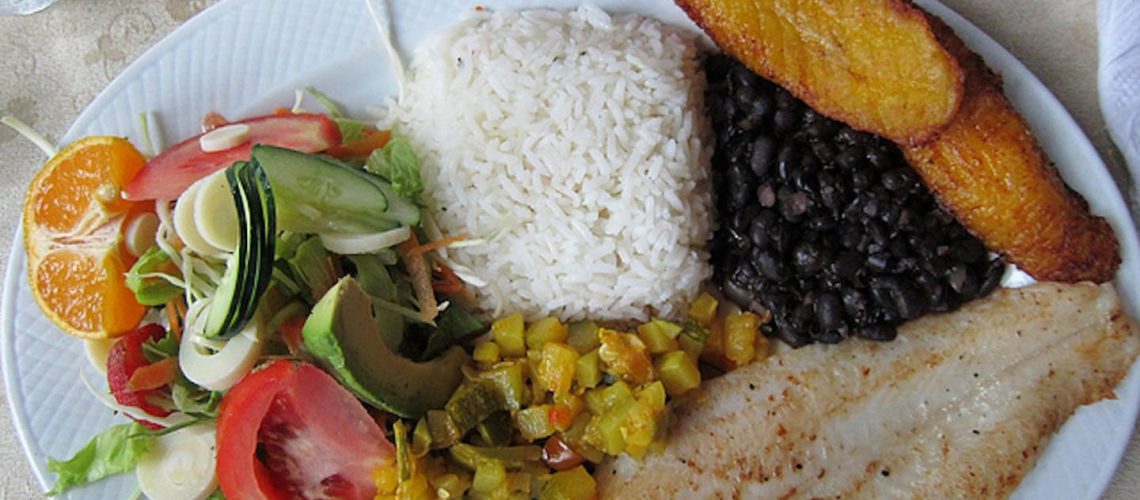

Literally “to stick your foot in,” this means to screw up, make a mistake, blow it.

Manda güevo. Literally “send egg,” this delightful saying means, “It’s easy, just do it!” It’s also sometimes used to mean “What a disappointment!” ¿ Tu pap á es due ñ o de una f á brica y te da pereza buscar un empleo? ¡Manda güevo! “Your father owns a factory and you’re too lazy to find a job? C’mon, just do it!” Mae. Apparently originating from the English “man,” this uniquely Costa Rican word (sometimes spelled maje) is used to address another person in informal contexts, similar to the word “dude.” ¿ Diay, mae, c ó mo no meti ó ese gol? “Oh, dude, how did he miss that goal?” Want to go bungee-jumping? “¡Manda güevo!” Just do it! Dijo que era rico, pero estaba hablando pura paja. “He claimed to be rich, but he was talking pure BS.” “to talk straw,” meaning to speak nonsense, to say things that aren’t true. Not a real insult, but used as a mild put-down among friends. Literally meaning someone with big testicles ( huevos = eggs), this does not refer to courage but to foolishness. Si no quieres trabajar, diay, va a ser difícil pagar tu renta. “If you don’t want to work, gee, it’s going to be hard to pay your rent.” ¡Diay, qué bello! “Diay” is an interjection with many meanings, often used to express surprise or puzzlement. Te dije que tu novio era un idiota, pero no me diste pelota. “I told you your boyfriend was an idiot, but you didn’t listen.”ĭiay. A filler word meaning “gosh, gee, wow,” often used to suggest the difficulty of addressing some issue. It suggests a soccer game where you’re wide open, but the person with the ball doesn’t pass it to you. “To give the ball to someone,” meaning to pay attention to someone, usually used in the negative. Los restaurantes de aquí nunca ganan nada de los comehuevos. “The restaurants here never make anything from the egg eaters.”ĭarle pelota. Refers to frugal Costa Rican families who take cheap vacations on the beach, bringing boiled eggs to eat so they don’t have to pay for restaurants. Necesito un chunche para abrir botellas de birra. “I need a thingamajig to open beer bottles.” “Comehuevos” are frugal Costa Ricans who bring boiled eggs on trips to avoid spending too much money at restaurants.Ĭomehuevos. Derived from the unintelligible manner in which early Chinese shopkeepers used to describe their goods. Thingamajig, whatchamallit a word used for any object you don’t know the name of. Cada loco con su tema. “She’s trying to sell her homemade tacos right in front of the Taco Bell. Literally, “each crazy person with his own issue,” or “To each his own.” Est á tratando de vender sus tacos caseros frente al Taco Bell. It’s also used to mean “really.” ❺l chile? ¡Al chile! “Really?” “Really!”Ĭada loco con su tema. Literally “to the chili,” this odd expression usually means fast, right now, right away. “I’m already sick and tired of this job.” This young lady looks “agüevada” - bummed out, bored or frustrated - while her colleague appears to be either yawning or stifling a laugh.Īl chile. Originating from huevos (“eggs,” meaning testicles), this word describes a variety of unhappy emotional states: bored, bummed out, depressed, frustrated, tired, bothered. To learn how these phrases are pronounced, click on each one to go to Google Translate, and then click on the “Listen” icon at lower left.Īgüevado. We wanted to create a glossary of 20 amusing Costa Rican phrases that you should know if you plan on visiting the country. We left out a few that might get you in trouble, but here are some that provide a window into Costa Rica’s creativity, originality and instinctive feel for looking on the brighter side of life. Many Costa Rican Spanish phrases have delightful and humorous backstories. Yet it has a rich history of inventing its own uniquely Costa Rican slang. While you’re visiting Costa Rica, take a bold step and learn some of its most iconic Spanish phrases.Ĭosta Rica is a tiny country, sandwiched between two oceans and two other countries. Ticos love a good joke, and it’s not unusual to hear even a grandmother use a little salty language. Costa Rica is often called the happiest country in the world, and some Costa Rican Spanish phrases (most famously, pura vida) are used to describe the country’s exuberant embrace of the joy of living.īut Costa Ricans also have a keen sense of irony – and a wicked sense of humor.


 0 kommentar(er)
0 kommentar(er)
